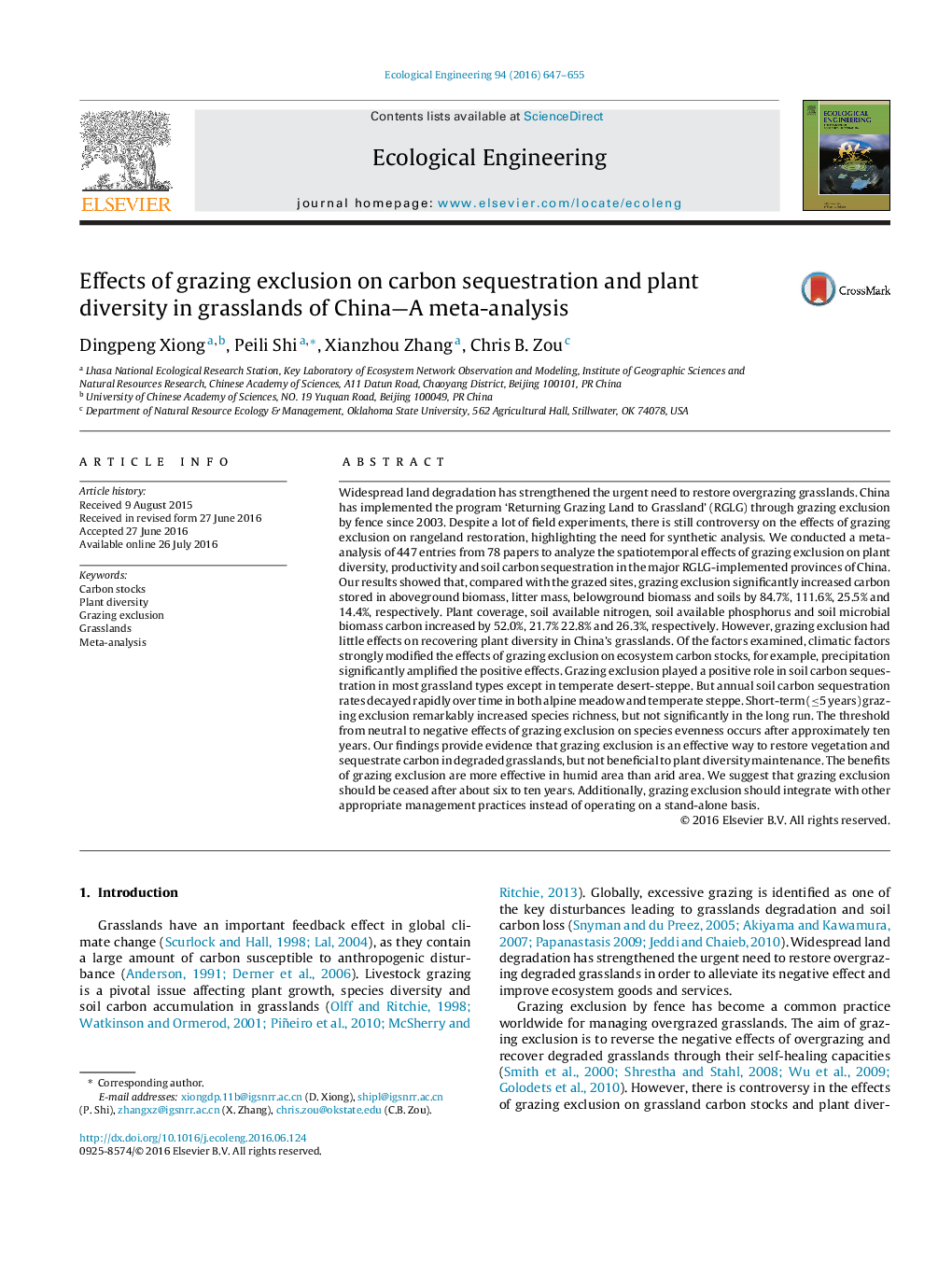| کد مقاله | کد نشریه | سال انتشار | مقاله انگلیسی | نسخه تمام متن |
|---|---|---|---|---|
| 4388594 | 1618005 | 2016 | 9 صفحه PDF | دانلود رایگان |
• Grazing exclusion increased ecosystem carbon stocks in degraded grasslands in China.
• Grazing exclusion is more efficient in humid than arid grasslands in terms of C sequestration.
• Soil carbon sequestration rates decayed rapidly over time.
• Grazing exclusion has little effect on plant diversity recovery.
• The RGLG program over ten years should be ceased and substituted by other integrated practices.
Widespread land degradation has strengthened the urgent need to restore overgrazing grasslands. China has implemented the program ‘Returning Grazing Land to Grassland’ (RGLG) through grazing exclusion by fence since 2003. Despite a lot of field experiments, there is still controversy on the effects of grazing exclusion on rangeland restoration, highlighting the need for synthetic analysis. We conducted a meta-analysis of 447 entries from 78 papers to analyze the spatiotemporal effects of grazing exclusion on plant diversity, productivity and soil carbon sequestration in the major RGLG-implemented provinces of China. Our results showed that, compared with the grazed sites, grazing exclusion significantly increased carbon stored in aboveground biomass, litter mass, belowground biomass and soils by 84.7%, 111.6%, 25.5% and 14.4%, respectively. Plant coverage, soil available nitrogen, soil available phosphorus and soil microbial biomass carbon increased by 52.0%, 21.7% 22.8% and 26.3%, respectively. However, grazing exclusion had little effects on recovering plant diversity in China’s grasslands. Of the factors examined, climatic factors strongly modified the effects of grazing exclusion on ecosystem carbon stocks, for example, precipitation significantly amplified the positive effects. Grazing exclusion played a positive role in soil carbon sequestration in most grassland types except in temperate desert-steppe. But annual soil carbon sequestration rates decayed rapidly over time in both alpine meadow and temperate steppe. Short-term (≤5 years) grazing exclusion remarkably increased species richness, but not significantly in the long run. The threshold from neutral to negative effects of grazing exclusion on species evenness occurs after approximately ten years. Our findings provide evidence that grazing exclusion is an effective way to restore vegetation and sequestrate carbon in degraded grasslands, but not beneficial to plant diversity maintenance. The benefits of grazing exclusion are more effective in humid area than arid area. We suggest that grazing exclusion should be ceased after about six to ten years. Additionally, grazing exclusion should integrate with other appropriate management practices instead of operating on a stand-alone basis.
Journal: Ecological Engineering - Volume 94, September 2016, Pages 647–655
